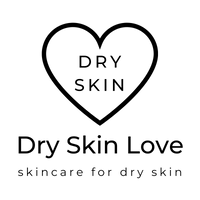Pineapple seed oil has benefits for your dry skin.
Pineapple seed oil is rich in fatty acids and can nourish your skin, soften your skin and strengthen your skin's moisture barrier.
This article with cover:
- What is pineapple seed oil?
- Pineapple seed oil can nourish your dry skin
- Pineapple seed oil can soften your dry skin
- Pineapple seed oil can strengthen your skin's moisture barrier
- Summary
- References
Our Dry Skin Love Brightening Pineapple 10% Vitamin C Face Oil is made with cold-pressed pineapple seed oil from the Philippines.
What is pineapple seed oil?
Pineapple seed oil is made by crushing pineapple seeds and collecting the oil.
Pineapple seeds are small black or brown flecks that can be found throughout the fruit and below the skin or the fruit
There are numerous varieties of pineapples and they can range from having lots of seeds to being seedless (Iyer et al, 1978; Junghans et al, 2015).
Pineapple seed oil is cold-pressed from seeds that would otherwise go to waste and is considered a ‘zero waste’ seed oil.
Pineapple seed oil is rich in essential nutrients, including essential fatty acids, and has many benefits for your skin.
Learn more: What is Pineapple Seed Oil?

Pineapple seed oil can nourish your dry skin
Pineapple seed oil is nutrient-rich and contains fatty acids that have benefits for your skin.
Composition of pineapple seed oil:
- 52 - 65% linoleic acid (C18:2, n-6)
- 26 - 34% oleic acid (C18:0, n-9)
- 4 - 10% palmitic acid (C16:0)
- 1 - 5% stearic acid (C18:0)
- 1 - 3% alpha-linolenic acid (n-3)
- 1 - 3% arachidic acid (C20:0)
These fatty acid are essential for skin health and can strengthen your skin's moisture barrier and improve the appearance of your dry skin.

Pineapple seed oil can soften your dry skin
Pineapple seed oil is a light oil and quickly absorbed into your skin.
Pineapple seed oil is an emollient and can soften your skin.
Pineapple seed oil is rich in beneficial fatty acids, including linoleic acid, oleic acid and palmitic acid. These fatty acids act as emollients and can soften your skin and smooth your skin.
What are the benefits of emollients?
The function of emollients in skincare is to soften the skin, help the skin retain its moisture and to support the skin’s barrier function.
Skin that does not have sufficient lipid content on its surface can appear dull, dry and rough. Emollients "fill in the gaps" in the skin barrier and soften it along with giving it a healthier look
The role of emollients in the treatment of dry skin conditions is often underestimated. Emollients promote optimal skin health and prevent skin breakdown, and their use can improve quality of life (Moncrieff et al, 2013; Newton et al, 2021).
Emollients are skin conditioning – the give skin a soft and smooth appearance, restoring suppleness and improving elasticity (Brown et al, 2005).
Emollients:
- Make your skin feel soft and smooth.
- Help reduce flaking and roughness from dry skin.
- Help assist the skin barrier by filling in gaps between cells.
Learn more: What are Emollients? Benefits for Your Dry Skin

Pineapple seed oil can strengthen your skin's moisture barrier
Pineapple seed oil contains ~65% linoleic acid, the major essential n-6 fatty acid found naturally in our skin barrier. Linoleic acid is a precursor for ceramides, which are bioactive lipids that play a role in keeping our skin barrier firm, smooth and healthy.
Pineapple seed oil also contains 34% oleic acid and 10% palmitic acid, fatty acids which are found naturally in the protective outer layer of the skin barrier, and help the skin retain moisture.
What is your skin barrier?
The skin barrier includes the outermost layers of skin, called the stratum corneum.
Your skin barrier is essentially what you can see and touch on the surface of your body.
When your skin barrier is healthy, it feels and appears smooth, soft, and plump.
In contrast, a damaged skin barrier looks dry, rough, dull, and dehydrated, and may become irritated and inflamed.
Learn more: Beneficial Fats Found Naturally in Your Skin Barrier
Summary
Pineapple seed oil is made by crushing pineapple seeds and collecting the oil.
Pineapple seed oil is cold-pressed from seeds that would otherwise go to waste and is considered a ‘zero waste’ seed oil.
Pineapple seed oil is rich in nutrients has benefits for your dry skin.
Pineapple seed oil is rich in fatty acids, including linoleic acid, oleic acid, palmitic acid and stearic acid.
Pineapple seed oil can nourish your skin, soften your skin and strengthen your skin's moisture barrier.
Dry Skin Love Pineapple 10% Vitamin C Face Oil is made with cold-pressed pineapple seed oil from the Philippines and gentle vitamin C ester - tetrahexyldecyl ascorbate (THDA) to brighten your skin.
Our Pineapple 10% Vitamin C Face Oil is a luxurious face oil that makes your dry skin feel soft, plump and brightened.

References
Brown A, Butcher M. A guide to emollient therapy. Nurs Stand. 2005 Feb 23-Mar 1;19(24):68, 70, 72 passim.
Iyer CP, Singh R, Subramanyam MD. A simple method for rapid germination of pineapple seeds. Scientia Horticulturae. 1978; Jan 1;8(1):39-41.
Junghans TG, Junghans DT, Matos EM, Batista EA, Mielke MS, Ledo CA. Seed germination of three pineapple progenies in different temperature regimes. Perspectiva. 2015;39(147):61-7.
Moncrieff G, Cork M, Lawton S, Kokiet S, Daly C, Clark C. Use of emollients in dry-skin conditions: consensus statement. Clin Exp Dermatol. 2013 Apr;38(3):231-8; quiz 238.
Newton H. Using emollients to promote safe and effective skin care for patients. Nurs Stand. 2021 Oct 6;36(10):77-82.
Author Information

Dr. Natasha Ryz is a scientist and formulator with over a decade of experience. She blends nature and science to create high-performance skincare for dry skin.
She trained in Organic Skincare Formulation at Formula Botanica and the School of Natural Skincare, earning 200+ hours of specialized education and a diploma in Beauty Brand Business Management.
With a PhD in Experimental Medicine from UBC and 15+ years of research in microbiology, immunology, and biochemistry, Dr. Ryz ensures every formulation is both effective and luxurious, delivering results with a rich sensory experience.



